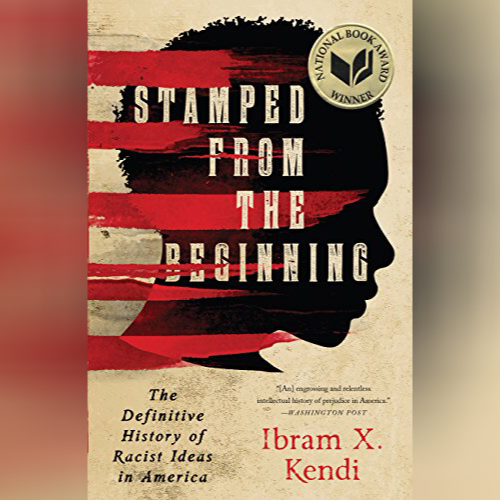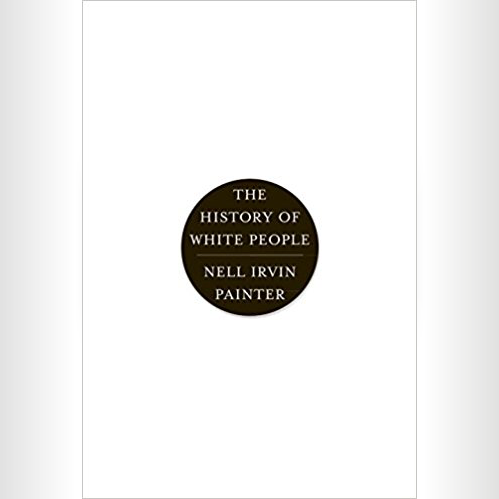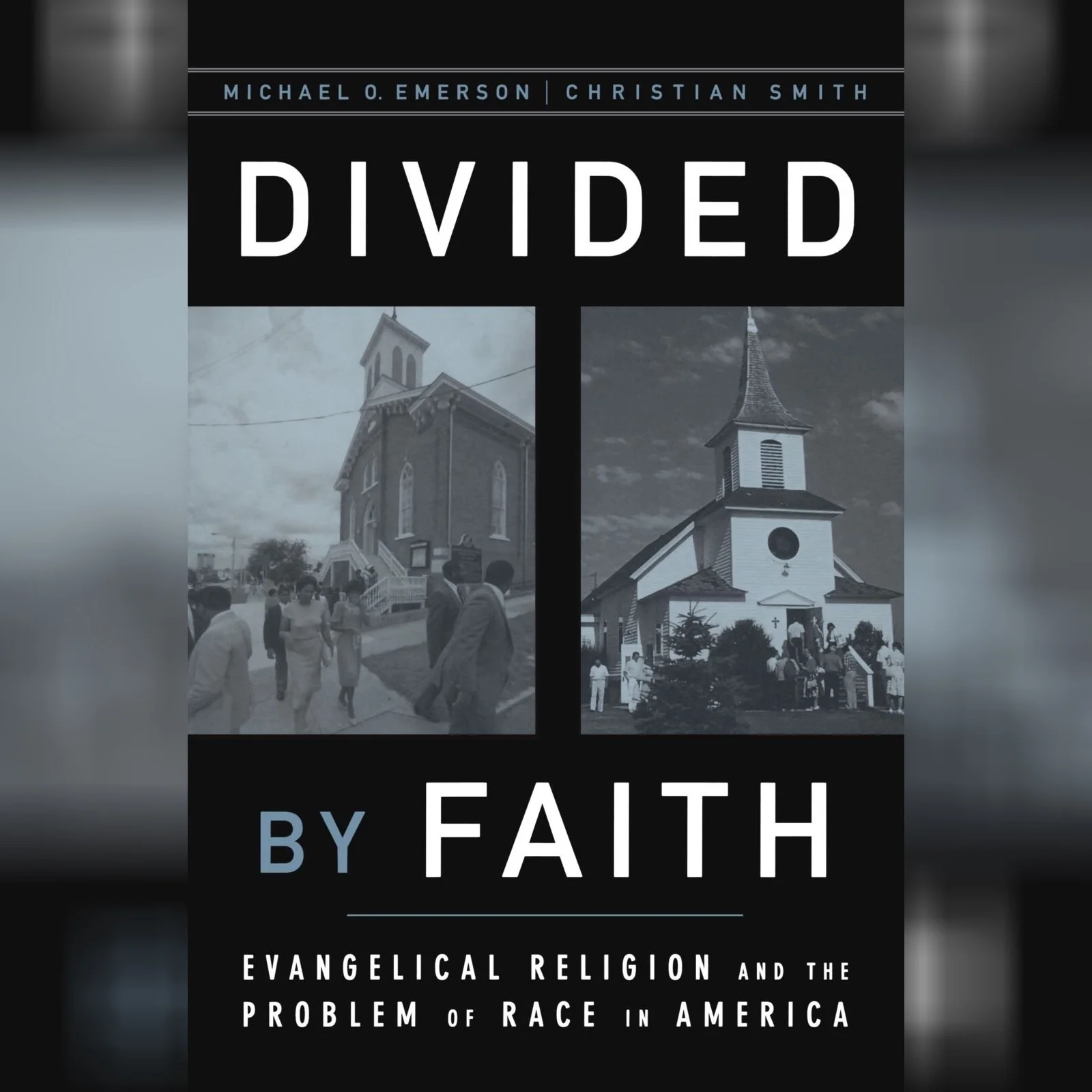BOOKS
NON-FICTION & MEMOIR
Stamped From the Beginning: The Definitive History of Racist Ideas in America
by Ibram X. Kendi
This book traces the evolution of racist ideas from the first European settlers on the American continent until now, focusing on the lives of five historical figures. This book revolutionized the way I think about the enduring and shape-shifting nature of white supremacy.
The History of White People
by Nell Irvin Painter
Starting in antiquity, Painter explores how and why humans have attempted to group each other throughout history, thoroughly explaining the groundwork that had to be laid for the concept of whiteness to sprout. In conjunction with “Stamped From The Beginning,” this is a great primer on scientific racism and how whiteness ultimately got started and gained steam.
Divided by Faith: Evangelical Religion and the Problem of Race in America
by Michael O. Emerson & Christian Smith
Arguing that mainline Christian beliefs and practices in white churches in America, despite somewhat good intentions, work to preserve systemic racism instead of fight it, the authors use thorough data and polling to show how unaware white American Christians are of their complicity in the oppression of their black brothers and sisters in the faith. Convicting and deeply troubling, I consider this work a prophetic indictment on white American Evangelicalism that it’s terribly unfamiliar with God’s justice.
I’m Still Here: Black Dignity in a World Made For Whiteness
by Austin Channing Brown
In this deeply personal work, Brown shares her experience of growing up black, Christian, and female in white middle-class America with a white man’s name. If Divided By Faith is the textbook about white Evangelicals’ racial ignorance, this is the memoir.
White Fragility: Why It’s So Hard for White People to Talk About Race
by Robin DiAngelo
Because I believe we desperately need more Robin DiAngelos in the world, I can’t recommend her works enough to white people wondering how to engage racial justice initiatives. She’s incredible at leading the way in self-interrogation using a voice that’s simultaneously firm, grave, commanding, inviting, and gracious.
The New Jim Crow: Mass Incarceration in the Age of Colorblindness
by Michelle Alexander
Widely considered a work that altered social discourse around race and ignited a nationwide movement, The New Jim Crow compels readers to recognize that a system of racial caste like that of Jim Crow is still with us in the form of mass incarceration. In my opinion, this book should be required reading in every single American school.
The Fire Next Time
by James Baldwin
First off, read every single Baldwin book you can. That’s the main thing.
The Fire Next Time is written in the form of two letters—one to Baldwin’s 14-year-old son instructing him on how to navigate race in American society, and one detailing the intersections of Baldwin’s race and the faith he grew up with but no longer practices (Christianity) and the one that surrounds him in Harlem (Islam).
Why Are All the Black Kids Sitting Together in the Cafeteria?: And Other Conversations About Race
by Beverly Daniel Tatum, Ph.D.
An expert on the psychology of race, Tatum lays out clear and powerful definitions of bias, prejudice, discrimination, and racism, explaining the difference between each. She explores the importance of the development of our racial identities, and how that work plays itself out in society.
Between the World and Me
by Ta-Nehisi Coates
In the tradition of Baldwin, Coates writes this book in the form of a letter to his teenage son, drawing from his experiences in Baltimore to detail the reality of what it means to be Black in the United States. His writing is poignant and intellectual, and at times, dark with recognizing the durability of white supremacy.
The Body Keeps The Score: Brain, Mind, and Body in the Healing of Trauma
Bessel Van Der Kolk, M.D.
Van Der Kolk’s revolutionary work over the last few decades has deeply influenced how modern psychiatrists, psychologists, and therapists alike think about trauma. This book summarizes many of his findings about how humans store traumatic memories not only in their minds and memories, but in their physical bodies as well, integrating every aspect of the human existence. Eye-opening not only for health professionals, but anyone who has personally experienced deep trauma or knows someone who has.
Boy Erased: A Memoir of Identity, Faith, and Family
Garrard Conley
In this important, heart-breaking, humanizing memoir, Conley recounts testimonies of his experiences coming out to his parents in college, and their subsequent rejection of his sexuality and insistence that he undergo conversion therapy with Exodus International—a now-defunct ex-gay Christian organization that claimed to help people change or limit homosexual attraction. Conley’s words tenderly show us how sexual minorities still must fight for their very lives, often in their very homes, and under the persecution of American Christianity.
Transforming: The Bible & the Lives of Transgender Christians
Austen Hartke
Using both biblical stories and experiences from transgender Christians today, Hartke invites readers into a richer and deeper understanding of what it means to be both faithful and transgender.
OTHER RECOMMENDATIONS:
Racism Without Racists: Color-Blind Racism and the Persistence of Racial Inequality in America by Eduardo Bonilla-Silva
The Color of Law: A Forgotten History of How Our Government Separated America by Richard Rothstein
Scripture, Ethics, and the Possibility of Same-Sex Relationships by Karen R. Keen
Waking Up White, And Findng Myself in the Story of Race by Debby Irving
FICTION
To Kill A Mockingbird
Harper Lee
A classic in American literature. Set in a small Alabama town in the Jim Crow era, the story follows a young girl, Scout, during her awakening to the realities of racism and prejudice. I know you read it in high school, but it’s worth another read now.
Giovanni’s Room
James Baldwin
My favorite Baldwin book—mostly because I feel as though he’s at his best here. The story follows a man, David, whose girlfriend makes a long-term visit to Spain. While she’s away, David begins an affair with Giovanni. His raw and often conflicted emotions about both relationships and his own sexuality compose the aether of this novel. Rich and raw, vulnerable and powerful.
The Bluest Eye
Toni Morrison
This book will break your heart. Morrison wrote it while single-handedly caring for her two sons and teaching at Howard University, and pulls no punches describing the often grisly realities of black women in the United States. The story, set in the 40’s but every bit as relevant today, explores the many things whiteness demands from black people—and especially black women.
Americanah
Chimamanda Ngozi Adichie
Americanah tells the story of a young Nigerian woman, Ifemelu, who immigrates to the U.S. to attend university. The novel traces Ifemelu's life in both countries, threaded by her love story with high school classmate Obinze.
Invisible Man
Ralph Ellison
Published in 1952, Invisible Man addresses many of the social and intellectual issues facing African Americans early in the twentieth century, including black nationalism, the relationship between black identity and Marxism and the reformist racial policies of Booker T. Washington, as well as issues of individuality and personal identity.
Things Fall Apart
Chinua Achebe
Things Fall Apart follows the life of Okonkwo, a “strong man” of an Ibo village in Nigeria, as he falls from grace within his tribe. This story runs parallel to another about the arrival of European missionaries in Okonkwo’s setting, whose aggressive methods mean the destruction of Okonkwo’s world.
The Color Purple
Alice Walker
Another book you likely read in high school that deserves another read. The story follows Celie, a young black girl in Georgie in the 30’s who, after being repeatedly raped and experiences separation from two of her babies and her sister, gets trapped in a marriages she desperately wishes to get out of. But after meeting singer Shug Avery, she begins to awaken to the joy and power within her and take hold of her own destiny.
Go Tell It on the Mountain
James Baldwin
This book is semi-autobiographical and you can feel the echoes of Baldwin’s own story throughout. In it, he explores the complicated role that the Pentecostal Church plays within black communities in the 1930s as a source of repression and inspiration, hypocrisy and community.
The Curious Incident of the Dog in the Night-Time
Mark Haddon
Beautiful and hilarious, The Curious Incident of the Dog in the Nighttime tells its story from the point of view of Christopher John Francis Boone—a fifteen-year-old savant with Asperger’s Syndrome. After the suspicious death of a neighbor’s dog, Christopher sets out to solve its murder in the fashion of his favorite detective, Sherlock Holmes.




















